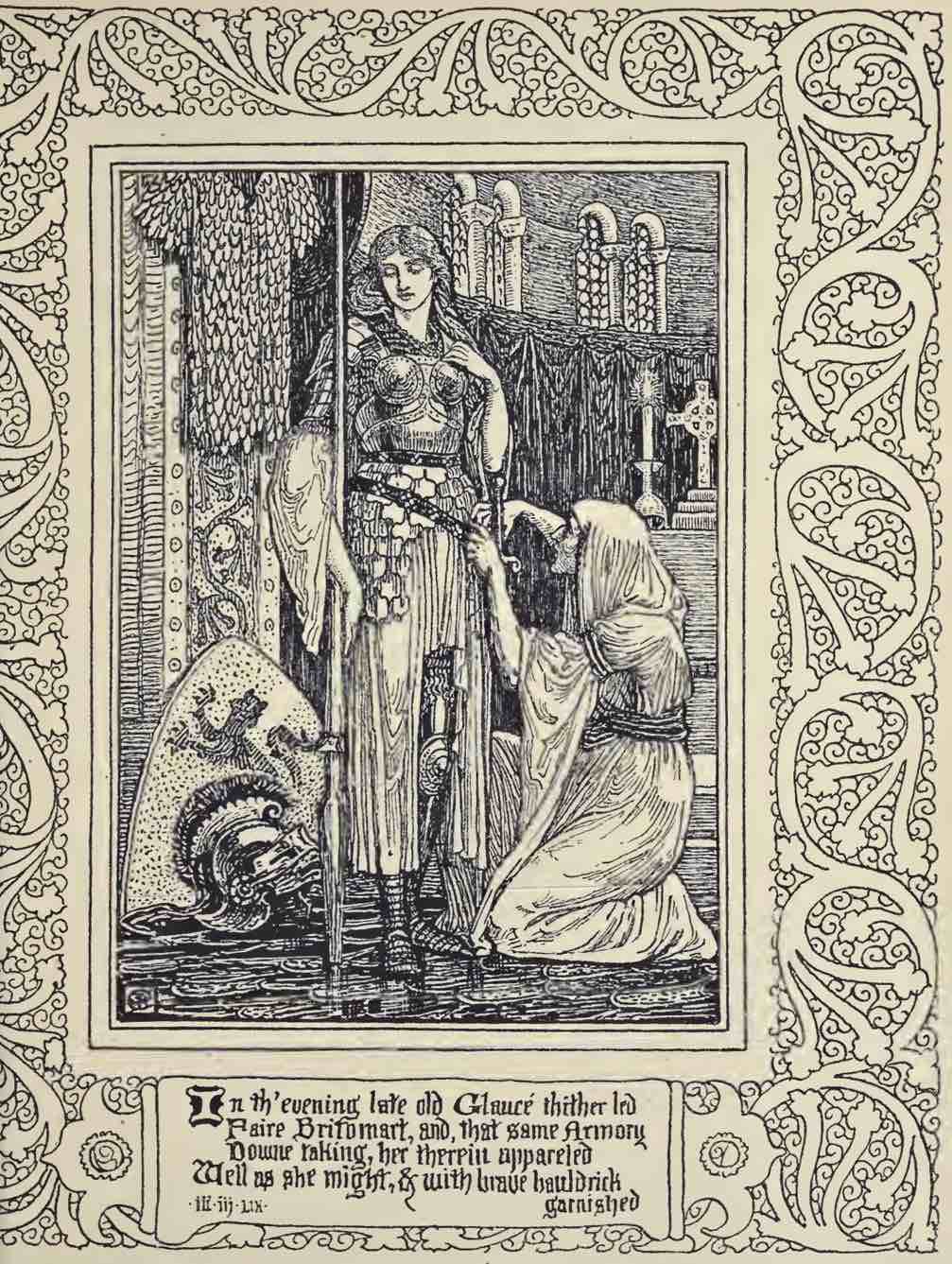423. Heaven-Bred Poesy: Philip Sidney and Edmund Spenser
We begin to look at Elizabethan literature, as Sidney argues that poetry is superior to philosophy, and philosophy is put to use in Spenser’s Fairie Queene.
Themes:
On Sidney
• G. Alexander (ed.), Sidney’s The Defence of Poesy and Selected Renaissance Literary Criticism (London: 2004).
• K. Duncan-Jones (ed.), Philip Sidney: The Major Works (Oxford: 2002).
---
• E.I. Berry, The Making of Sir Philip Sidney (Toronto: 1998).
• J. Buxton, Sir Philip Sidney and the English Renaissance (London: 1954).
• D. Connell, Sir Philip Sidney: the Maker’s Mind (Oxford: 1977).
• K. Duncan-Jones, Sir Philip Sidney: Courtier Poet (London: 1991).
• A. Stewart, Philip Sidney: A Double Life (London: 2000).
• R.E. Stillman, Philip Sidney and the Poetics of Renaissance Cosmopolitanism (Aldershot: 2008).
On Spenser
• C.V. Kaske et al. (ed.), Edmund Spenser: The Faerie Queene (Indianapolis: 2006-7), five vols.
• A. Hadfield and W. Maley (eds), Edmund Spenser: A View of the State of Ireland (Oxford: 1997).
---
• A. Hadfield (ed.), Cambridge Companion to Spenser (Cambridge: 2001).
• A. Hadfield, Edmund Spenser: a Life (Oxford: 2012).
• A. Hume, Edmund Spenser: Protestant Poet (Cambridge: 1984).
• I.G. MacCaffrey, Spenser’s Allegory: The Anatomy of Imagination (Princeton: 1976).
• J.A. Quitslund, Spenser’s Supreme Fiction: Platonic Natural History and the Faerie Queene (Toronto: 2001).
• R.A. McCabe, The Pillars of Eternity: Time and Providence in The Faerie Queen (Dublin: 1989).
• P. Suttie, Self-Interpretation in The Faerie Queene (Woodbridge: 2006).







Comments
A cliffhanger!
At the end of an excellent episode, a cliffhanger! Two weeks to wait until I find out what happens next ... 🙂
How many interviews do you have planned for Britain?
I've noticed you haven't given us a heads up of interview guests to look forward to for Reformation era Britain like you have written for other sections
https://historyofphilosophy.net/renaissance-reformation/britain
Compared to for example
https://historyofphilosophy.net/renaissance-reformation/italy
https://historyofphilosophy.net/renaissance-reformation/central-europe
https://historyofphilosophy.net/renaissance-reformation/france
So how many interview guests have you lined up or plan to for this section?
In reply to How many interviews do you have planned for Britain? by dukeofethereal
Interview guests
Oh true, that's because I hadn't firmed up interview guests yet. Apart from the one we already had with MacCulloch I do have one lined up on Shakespeare and then I hope also to do interviews on logic/scholasticism and on science in the British Renaissance, but I haven't invited anyone yet for those.
The Novelty of Colonialism
"[This] gives us a first glimpse of attitudes we'll, unfortunately, be seeing again and again as the podcast goes forward. Spenser's writing on Ireland is an early articulation of the ideology of colonialism."
Dear Professor Adamson, may I humbly challenge you to clarify your claim that colonialism was a new idea at this time?
At very least I would venture that this is not the first example of an Englishman justifying treating the Irish badly.
Your thoughts?
PS
"Long time listener, first time commenter"; may I take this chance to thank you - I have learned so much from you and am very grateful for all your hard work on this project.
In reply to The Novelty of Colonialism by Blair Woodhurst
Advent of colonialism
Well that's a fair point, maybe I should rephrase what I say in the book version. But I didn't mean that Ireland in the 16th century was the first time anyone had engaged in colonialism, I meant it was the first time I've discussed a text that is frankly expressing colonialist ideology. Nothing else springs to mind in what I have covered, at least (I mean, in this series, obviously we've talked about it tons on the Africana series). Having said that, while I am not an expert on the history of colonialism itself, I do think the 16th century might mark a turning point since it is here that we have the European powers beginning to exploit the recently contacted Americas; thus it is probably fair to say that it's in this period more generally that we see colonialism begin to emerge as an intellectual project. That doesn't rule out that, say, the English had been engaging in colonialist practices in earlier times. It would help here if I knew more about the history of Ireland, I just don't know whether the Elizabethan approach was really new in England's dealings with Ireland. Maybe someone can comment who knows more.
In reply to Advent of colonialism by Peter Adamson
Reply
"...maybe I should rephrase [in the book]"; I'm flattered, but please don't overthink on my account (:
Dear Professor,
Thank you for your reply.
I've always appreciated the sympathetic reading you give to these comments; I think you intuited much of what I meant to get at with my challenge, despite it being poorly worded. I understood you were framing this as new to this series; I should have added "...[new at this time] OR to this series". Also, though it didn't come across, my point was less about the specifics of English/Irish history (of which I too wish I knew more), but rather how readily at hand examples of colonial practice, to use your term, are in history.
To be clear that I wasn't taking a pot shot; the recent example from this series that sprang to my mind was your discussion of Machiavelli in The Prince. You mentioned he recommended colonization over subjugation and this seemed to contain some detail and justification. However, from what you went on to say in the episode and from your reply here, I think I can see why Machiavelli might not fall into your category of "[articulating Colonialism]".
You say that Montaigne and de las Casas "drew the exact opposite conclusion" from Spencer; what of theirs did you have in mind?
Sounds like you may be exploring these ideas more in the upcoming episode on The Tempest, I look forward to it; It's my favorite of Shakespeare's plays second only to Hamlet and possibly that one we shouldn't name (which we get episodes on too - oh my!).
Thanks again!
In reply to Reply by Blair Woodhurst
Montaigne and de las Casas
The reason I mention them is that they both had sympathy with the newly contacted peoples - with de las Casas that is the main point of his writings, and for instance we have the Valladoid debate. We'll be covering that in detail later. And I will talk about Montaigne's views on this in comparison to The Tempest: the two essays most relevant there are "On Cannibals" (which Shakespeare read) and "On Coaches."
Categorizing poetry as a genre
At one point in the episode poetry is referred to as a genre. Without being an expert on Elizabethan verse, I still feel confident in saying that no one then thought of poetry as a genre in our sense of the term, as a category that is gathered together on specific shelves in a library or a bookstore.
Back before our modern genre concept arose, defined by subject matter, the main difference between poetry and prose was in terms of language. In English, that meant that a poem was in meter and it rhymed. A poem could be about anything, but the language needed to be poetic. There were verse letters, verse treatises, all sorts of poems on subject we wouldn’t really think of as suited to poetry, because we’re used to categorizing by subject, not language use.
As far as epic, lyric and drama–and I confess I don’t know how much Elizabethans thought about those terms–these were genres of form, rather than subject. Our modern idea of poetry is, essentially, an outgrowth of the lyric form, and has become codified by modern publishers, booksellers and librarians. It isn’t much like the boundaries of what people of Spenser’s and Sidney’s time would’ve thought of as poetry (though we’d all agree that a rhymed, metered sonnet counts as poetry).
Hopwoag
History of poetry without any gaps? Sign me up.
Add new comment